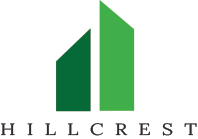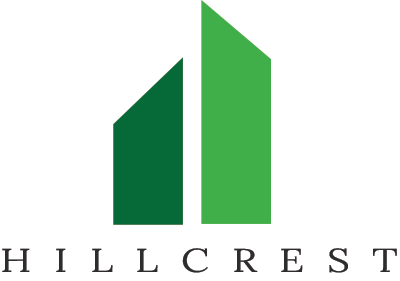Board members must familiarize themselves with the Illinois Common Interest Community Association Act. In doing so, they can protect the association from legal liability. Similarly, homeowners must understand this law to safeguard their rights.
What is the Illinois Common Interest Community Association Act?
The Illinois Common Interest Community Association Act (CICAA) is a vital legal framework. It governs the operation and management of specific homeowner associations within the state. The Act helps ensure fair governance, financial accountability, and transparency in residential communities.
The CICAA applies to a wide range of planned communities, including subdivisions, townhomes, and other developments. It does not apply to condominiums, which a separate Act governs. The law provides structure, guidance, and protections for both boards and homeowners.
What is the Purpose of the Illinois CICAA?
The Illinois General Assembly passed CICAA in 2010. The Act creates consistent rules for common interest communities. Its goal is to strike a balance between protecting homeowners and giving associations enough authority to operate effectively.
This law aims to address issues such as poor communication, unclear bylaws, and a lack of transparency in board decisions. It sets expectations for how associations handle governance, financial matters, and owner rights.
Additionally, the Act helps prevent misuse of funds, arbitrary decisions, and hidden rules. It ensures that all owners have a voice and access to information. It also protects boards by giving them apparent authority and procedures to follow.
Who Must Follow the Illinois Common Interest Community Association Act?
CICAA applies to common interest communities in Illinois that:
- Have more than ten units; or
- Collect over $100,000 in annual assessments.
Smaller associations may choose to adopt the Act voluntarily. Some developers and boards adopt this approach to promote fairness and best practices.
Key Provisions of the Illinois CICAA
The Illinois Common Interest Community Associations Act covers many areas of HOA operations. Below are the most critical sections, along with their implications for boards and homeowners.
1. Board Meetings and Transparency (Sections 1-40 and 1-45)
Boards must hold regular meetings that are open to all unit owners. They must give notice of these meetings at least 48 hours in advance. The notice must include the date, time, and location.
Owners have the right to attend and speak at open meetings. Boards can only close meetings for limited purposes, such as discussing litigation, personnel matters, or delinquent accounts.
Boards must also keep and maintain meeting minutes. These minutes must be made available to owners upon request within 30 days.
2. Board Powers and Duties (Section 1-30)
The board is responsible for managing the property and handling all association affairs. This includes enforcing governing documents, collecting dues, and maintaining common areas. The HOA board is also responsible for hiring vendors and professionals.
3. Elections and Term Limits (Section 1-25)
The Act ensures fair and regular elections. Associations must hold elections for board positions at least once every two years. All owners in good standing are eligible to run for the board. Owners may also vote by proxy or by ballot, if permitted by the governing documents.
Furthermore, the board must follow a transparent election process. This involves providing notice of the election, listing qualified candidates, and accurately tallying and reporting the results.
4. Owner Rights and Responsibilities (Sections 1-5 and 1-30)
According to the Illinois CICAA, owners have the right to the following:
 Access financial records and meeting minutes
Access financial records and meeting minutes- Attend open board meetings
- Vote in elections
- Review governing documents
At the same time, owners are responsible for following rules, paying dues, and maintaining their homes. If owners break the rules or fall behind in payments, the board may take action. This includes fines or legal proceedings.
5. Financial Reporting and Budgeting (Sections 1-45 and 1-30)
Transparency in financial matters is critical under CICAA. Boards must prepare and adopt an annual budget, provide copies of the proposed budget to all owners, and disclose financial statements.
The Act does not require a formal audit to be conducted every year. Still, boards must keep detailed records. It must also allow owners to inspect financial documents upon request. That said, associations that collect more than $250,000 annually must obtain an independent review of their finances annually.
6. Assessment Collection and Delinquencies (Section 1-30)
Assessments fund the operation and upkeep of the community. CICAA requires boards to follow a fair and documented collection process. If a homeowner falls behind, the board must notify the owner of the delinquency, offer a reasonable opportunity to pay, and document all communications.
Additionally, the board may impose late fees, interest, or initiate legal action if necessary. Still, any action must follow the rules outlined in the governing documents and the Act.
7. Rule Enforcement and Due Process (Section 1-30)
Boards may enforce community rules by issuing violation notices and imposing fines. Before doing so, they must provide the owner with notice and an opportunity to respond.
This process typically includes the following:
- Written notice describing the violation
- A deadline to fix the issue or request a hearing
- A hearing before the board
Finally, HOA boards must document the outcome and notify the homeowner of any decision.
8. Amending Governing Documents (Section 1-20)
The CICAA outlines a straightforward process for amending the governing documents. According to the Act, the board or homeowners may propose amendments. Approval usually requires a majority vote of the board and unit owners, depending on the provision. Upon approval, the board must record the amendment with the local county office.
9. Disclosures and Selling Property (Section 1-35)
When a homeowner sells a unit, the association is required to provide a disclosure statement. This statement includes:
 The current balance owed on assessments
The current balance owed on assessments- Any pending violations
- The association’s budget and financial condition
- Rules and regulations
10. Developer and Turnover Requirements (Section 1-50)
In new communities, developers often control the association until a certain number of units are sold. CICAA requires developers to transfer control to the homeowners once they have sold 75 percent of the units. Upon transition, the developer must transfer all documents and records and disclose the association’s financial state.
The Final Word
The Illinois CICAA is more than just a set of rules. It is a guide to fair and effective community living. It protects owners while allowing boards to perform their duties effectively. For any HOA in Illinois, understanding this law is essential. Both homeowners and board members benefit from learning the details and following best practices.
Hillcrest offers HOA management services to communities in Chicago. Call us today at 630-627-3303 or contact us online to request a proposal!
RELATED ARTICLES:
- What Is The Open Meeting Act in HOAs?
- HOA Meeting Protocol: A Proper Structure For Meetings
- HOA Meeting: What Goes On From Start To Finish




